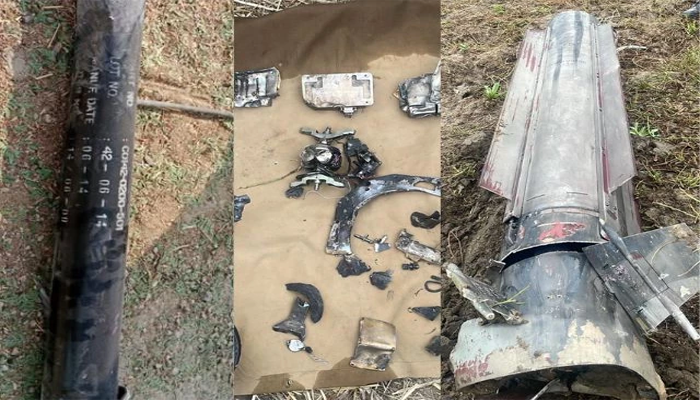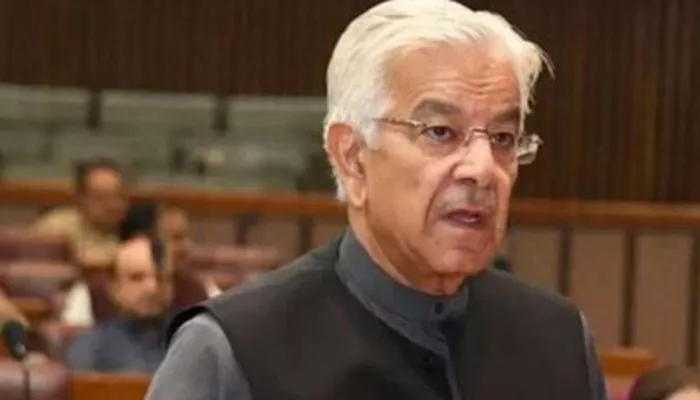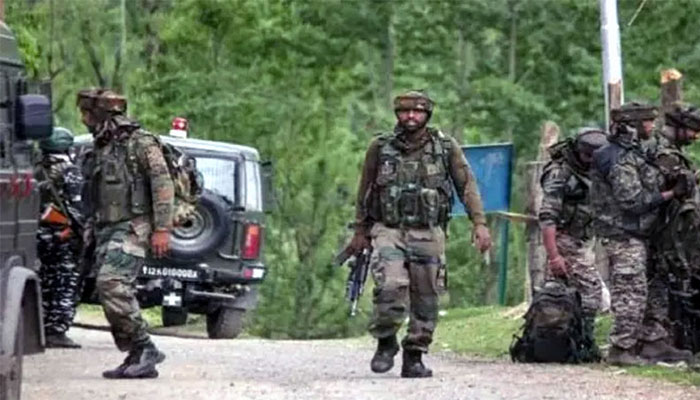ISLAMABAD: In a dramatic escalation of hostilities, the Pakistan Army intercepted and destroyed 77 Israeli-manufactured Harop drones that were allegedly launched by India to strike both civilian and military targets, Federal Minister for Information Attaullah Tarar confirmed on Friday.
The drones were brought down in a two-day operation that began on Wednesday. According to official sources, 29 drones were neutralized by Thursday evening, while an additional 48 were intercepted in the early hours of Friday. These developments come amid growing tensions along the Line of Control (LoC), where unprovoked Indian shelling has killed at least five civilians and injured seven others.
Security sources report that residential areas in Hajeera, Forward Kahuta, and Khuiratta came under heavy artillery fire from the Indian side, resulting in severe structural damage and loss of civilian lives. The Pakistan Army responded immediately and effectively, reportedly forcing Indian troops to raise a white flag near the Dharamsal 2 post opposite the Battal sector — a highly unusual move indicating retreat or de-escalation under pressure.
Military officials emphasized that Pakistan would not tolerate aggression across the LoC, stating that any hostile act would be met with swift and decisive retaliation.
This surge in violence follows a deadly bombing in Pahalgam, Indian Illegally Occupied Jammu and Kashmir (IIOJK), on April 22, which claimed the lives of 26 people, mostly tourists. India swiftly blamed Pakistan for the attack, though it has not presented any public evidence to support the allegation. Pakistan has categorically denied involvement and condemned the attempt to implicate it without proof.
In retaliation for the Pahalgam incident, India undertook several aggressive diplomatic and strategic steps. These included the abrupt closure of the Wagah-Attari land crossing, suspension of the Indus Waters Treaty, and revocation of Pakistani visas — all announced on April 23. Pakistan responded by sealing its side of the border and warning that any disruption to its water supply would be viewed as an act of war.
Hostilities reached a critical point during the night of May 6–7, when India reportedly launched a coordinated military offensive targeting multiple areas inside Pakistani territory. Airstrikes and missile attacks were carried out in Sialkot, Shakargarh, Muridke, and Bahawalpur in Punjab, along with Kotli and Muzaffarabad in Azad Jammu and Kashmir.
According to the Inter-Services Public Relations (ISPR), these strikes resulted in the deaths of at least 31 civilians, including women and children, and injured 71 others. Significant damage was also reported to civilian infrastructure, including mosques and the Neelum–Jhelum Hydropower Project.
In response, Pakistan’s military launched a retaliatory campaign, reportedly shooting down five Indian Air Force jets — including three Rafale fighters, one MiG-29, one SU-series jet — and one Israeli-made Heron combat drone. These aircraft were reportedly downed in locations such as Bhatinda, Jammu, Akhnoor, Srinagar, and Avantipur.
As tensions between the nuclear-armed neighbors continue to spiral, international observers have called for restraint and immediate de-escalation to prevent a broader conflict









